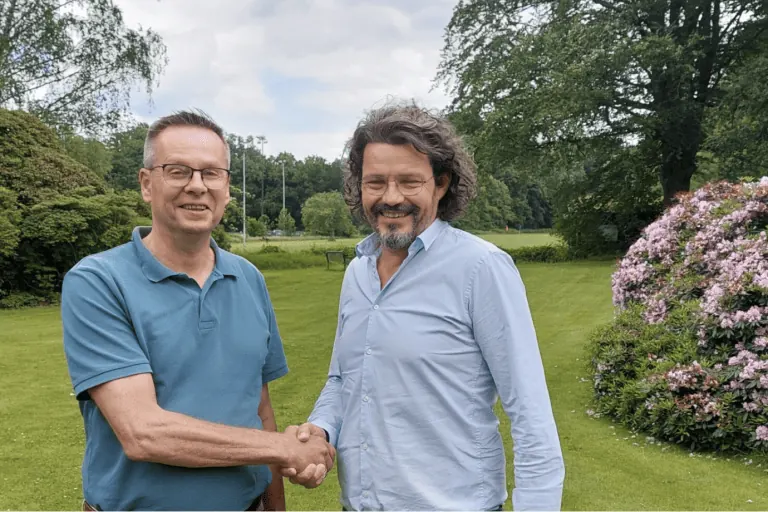Having a clear vision is essential for companies to remain relevant in society. It enables them to create value not only for themselves, but also for their employees, customers and stakeholders. Without vision, companies risk becoming irrelevant, short-sighted and ultimately unsustainable.
I see many companies struggling with the concept of purpose. “What is it?”; “How can I add value to society with my company?”; “My product has added value, right? Isn’t that enough?”
While it is certainly true that your product adds value, to discover your true purpose, you need to change your perspective. Until now, success has been defined by knowing precisely what your Unique Selling Proposition (USP) is and understanding which market/product combination it works best in. However, this market-centric perspective does not assist you in uncovering your true purpose.
Take society as a starting point.
To discover your higher purpose, you should not begin with yourself but with the society of which you are a part. What is happening there? What occurs in the society in which you sell your products, where your employees are members, and where you source your raw materials? What is on your mind? What are some issues that you believe remain unsolved?
What do you wish for society? What kind of society do you want to live in? These are not easy questions to answer, but formulating them brings you to themes that are close to your heart. In other words, to find your purpose you need a vision of society and the world.
“To find your higher purpose, you do not take yourself as a starting point, but the society you are part of.”
Society expects it to be seen as a starting point.
On the other hand, society increasingly expects that a company’s ultimate goal should be to create value for society, rather than just for itself. A company that focuses exclusively on its own interests and profits is unlikely to be sustainable in the long term in the eyes of the increasingly critical consumer and employee. The way in which Shell, Heineken and other multinationals are increasingly being held accountable is a harbinger of this development.
Formulating a compelling purpose therefore requires a deep understanding of the forces shaping the world, as well as a willingness to challenge assumptions and embrace new ideas. The coming years will probably be as restless, or perhaps even more restless, than the last 4 years with Trump, #metoo, corona and the Ukraine war.
The search for purpose requires the willingness to take risks and experiment with new approaches.
Identifying the most pressing social and environmental issues and finding ways to contribute to solving them will become the ‘new competition’. By understanding the needs and wants of society, companies can develop products and services that meet those needs in unique and valuable ways. This opens a new avenue to gain competitive advantage and greater market share.
In short, companies that take the world as a reference point to find their higher purpose are more likely to create value for society, drive innovation, improve their reputation and create a satisfying work environment for their employees. By focusing on the needs and wants of society, companies can achieve long-term success and have a positive impact on the world.


